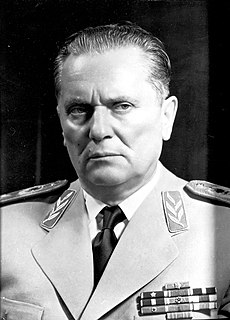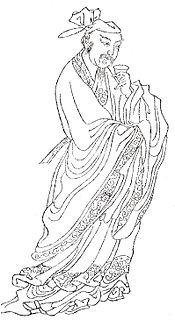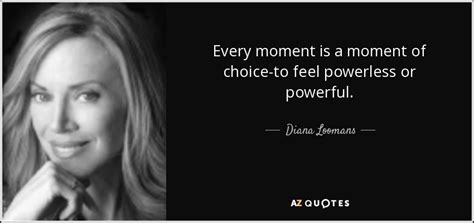A Quote by Niccolo Machiavelli
You must never believe that the enemy does not know how to conduct his own affairs. Indeed, if you want to be deceived less and want to bear less danger, the more the enemy is weak or the less the enemy is cautious, so much more must you esteem him.
Related Quotes
The enemy of the black is not the white. The enemy of capitalist is not communist, the enemy of homosexual is not heterosexual, the enemy of Jew is not Arab, the enemy of youth is not the old, the enemy of hip is not redneck, the enemy of Chicano is not gringo and the enemy of women is not men. We all have the same enemy. The enemy is the tyranny of the dull mind. The enemy is every expert who practices technocratic manipulation, the enemy is every proponent of standardization and the enemy is every victim who is so dull and lazy and weak as to allow himself to be manipulated and standardized.
What does labor want? We want more schoolhouses and less jails; more books and less arsenals; more learning and less vice; more leisure and less greed; more justice and less revenge; in fact, more of the opportunities to cultivate our better natures, to make manhood more noble, womanhood more beautiful, and childhood more happy and bright.
An enemy, Ender Wiggin," whispered the old man. "I am your enemy, the first one you've ever had who was smarter than you. There is no teacher but the enemy. No one but the enemy will tell you what the enemy is going to do. No one but the enemy will ever teach you how to destroy and conquer. Only the enemy shows you where you are weak. Only the enemy tells you where he is strong. And the rules of the game are what you can do to him and what you can stop him from doing to you. I am your enemy from now on. From now on I am your teacher.
The Enemy wants to bring the man to a state of mind in which he could design the best cathedral in the world, and know it to be the best, and rejoice in the fact, without being any more (or less) or otherwise glad at having done it than he would be if it had been done by another. The Enemy wants him, in the end, to be so free from any bias in his own favour that he can rejoice in his own talents as frankly and gratefully as in his neighbour's talents--or in a sunrise, an elephant, or a waterfall.
Love does not traffic in a marketplace, nor use a huckster's scales. Its joy, like the joy of the intellect, is to feel itself alive. The aim of Love is to love: no more, and no less. You were my enemy: such an enemy as no man ever had. I had given you all my life, and to gratify the lowest and most contemptible of all human passions, hatred and vanity and greed, you had thrown it away. In less than three years you had entirely ruined me in every point of view. For my own sake there was nothing for me to do but to love you.
Whoever is the first in the field and awaits the coming of the enemy will be fresh for the fight... Therefore the clever combatant imposes his will on the enemy... By holding out advantages to him, he can cause the enemy to approach of his own accord; or by inflicting damage, he can make it impossible for the enemy to draw near.
What do we mean by the defeat of the enemy? Simply the destruction of his forces, whether by death, injury, or any other means-either completely or enough to make him stop fighting. . . . The complete or partial destruction of the enemy must be regarded as the sole object of all engagements. . . . Direct annihilation of the enemy's forces must always be the dominant consideration.
If I wish to wrest an advantage from the enemy, I must not fix my mind on that alone, but allow for the possibility of the enemy also doing some harm to me... If I wish to extricate myself from a dangerous position, I must consider not only the enemy's ability to injure me, but also my own ability to gain an advantage over the enemy.
If the enemy is to be coerced, you must put him in a situation that is even more unpleasant than the sacrifice you call on him to make. The hardships of the situation must not be merely transient - at least not in appearance. Otherwise, the enemy would not give in, but would wait for things to improve.
How much reverence has a noble man for his enemies!--and such reverence is a bridge to love.--For he desires his enemy for himself, as his mark of distinction; he can endure no other enemy than one in whom there is nothing to despise and very much to honor! In contrast to this, picture "the enemy" as the man of ressentiment conceives him--and here precisely is his deed, his creation: he has conceived "the evil enemy," "the Evil One," and this in fact is his basic concept, from which he then evolves, as an afterthought and pendant, a "good one"--himself!
If I had my child to raise all over again,I'd finger paint more, and point the finger less.I'd do less correcting, and more connecting.I'd take my eyes off my watch, and watch with my eyes.I would care to know less, and know to care more.I'd take more hikes and fly more kites.I'd stop playing serious, and seriously play.I'd run through more fields, and gaze at more stars.I'd do more hugging, and less tugging.I would be firm less often, and affirm much more.I'd build self esteem first, and the house later.I'd teach less about the love of power, and more about the power of love.
The fact, however, to which I want to call attention is that the master of Judo never relies upon his own strength. He scarcely uses his own strength in the greatest emergency. Then what does he use? Simply the strength of his antagonist. The force of the enemy is the only means by which that enemy is overcome.



































